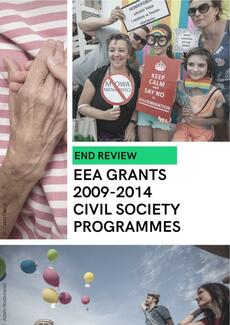6.47 MB

Rapid assessment of the Civil Society programmes under the 2009-2014 funding period. The assessment was conducted by Nordic Consulting Group, and was published in October 2019. This rapid assessment focused on seven countries: Bulgaria, Greece, Hungary, Lithuania, Poland, Romania, and Slovakia.
Main findings:
- Capacity development: Developing the capacity of the civil society sector in terms of administrative and technical aspects and in terms of establishing solid organisational identities are important to solidifying the role of civil society actors.
- Relationship-building: Partnerships, networks, and coalitions can play a central role in expanding coverage (both in number and types of beneficiaries) and the type of activities undertaken, as well as help build civil society actors’ capacity and strengthen the sector by solidifying different actors’ roles and uniting their individual voices.
- Watchdogs and monitoring: Conducting watchdog and monitoring activities is important and requires subject-matter-specific capacity; these activities function best when all parties understand their purpose and benefit.
- Civic participation: The population of most countries in this rapid assessment have limited experience with civic participation, which means finding ways to induce their participation is important. Rallying around issues relevant to them individually and promoting volunteerism have proven effective in jump-starting participation.
- Countering discrimination: Arts and culture are highly effective conduits to promoting common understanding and appreciation for people from different cultures and backgrounds. This shows that although nationalism is on the rise, key opportunities exist to curb this type of rhetoric.